
The annual Open Education Awards for Excellence recognizes outstanding contributions in the Open Education community, recognizing exemplary Individuals, distinctive Open Educational Resources, and innovative Open Practices from around the world.
As part of sharing as much recognition as possible, in 2024 we are first announcing the newest OEAwards shortlist of finalists that celebrates 16 individuals and 38 open education initiatives and practices across the 16 awards categories.
The shortlist of finalists was selected from 112 nominations of open education excellence representing 28 countries in a process conducted by the 30 past winners who serve on the OE Awards 2024 Committee and the OEGlobal Board Members. The numbers of finalists are proportional to the number of nominations in each category.
Explore the finalists listed below for each award category. Please add messages of encouragement and gratitude in OEG Connect as well as in your social media channels– tag everywhere #OEAwards24.
We are proud to share with you below the 2024 finalists!
People in Open
Catalyst Award
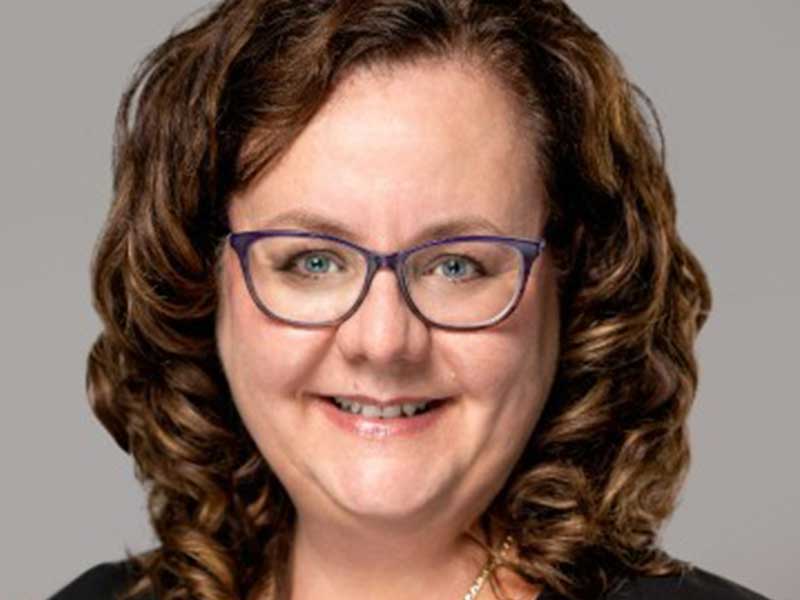
Kimberlee Carter
Conestoga College, Canada
Kim transitioned her crafted one-person special initiative as an OER consultant into a permanent leader of the growing Open Learning team within Conestoga’s Library and Learning Services.
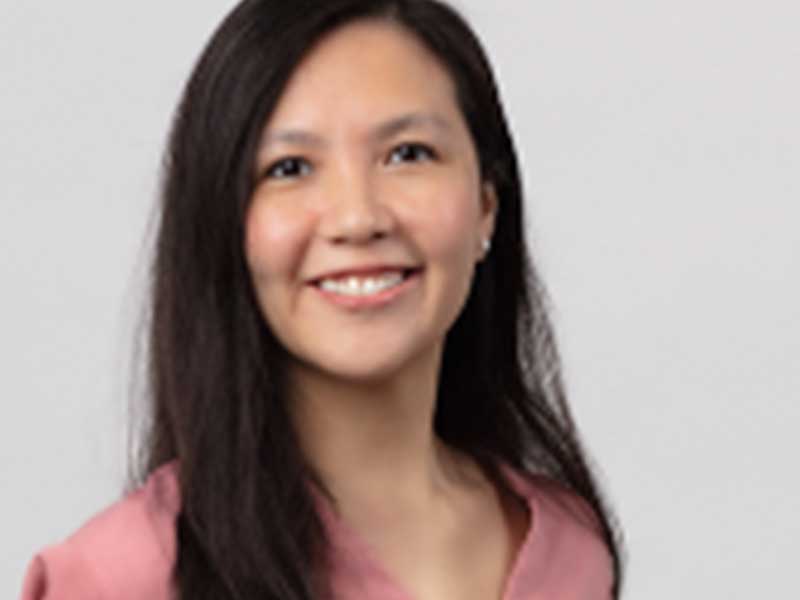
Melody Chin
Singapore Management University , Singapore
As a Research Librarian, Melody has made significant contributions to OER and Open Education, both at Singapore Management University (SMU) as well as internationally.
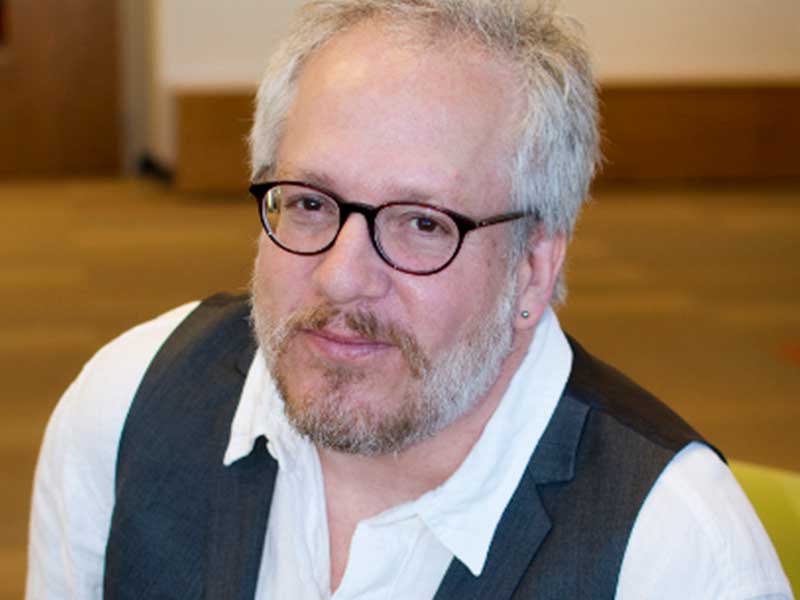
Jonathan Poritz
Independent, Italy
Jonathan Poritz is an open education advocate, educator and ‘doer.’ He is actively engaged in promoting the creation and implementation of OER and open education practices at every turn.
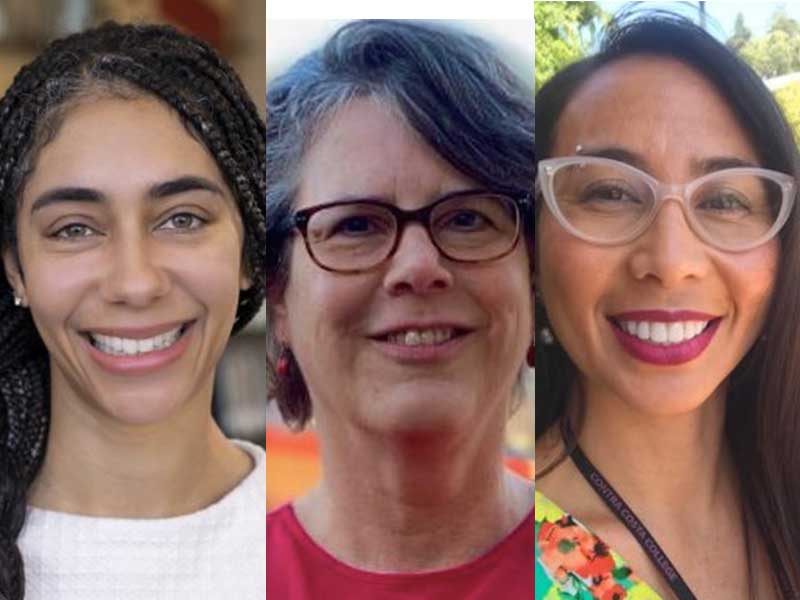
Joy Shoemate, Kim Grewe, and Maritez Apigo
Open for Antiracism, United States
Joy, Kim, and Maritez are essential developers and facilitators of the OFAR program, that is supporting community college faculty to use OER and Open Pedagogy to make their teaching antiracist
Educator Award

Ulrich Kaiser
Hochschule für Musik und Theater München, Germany
Countering the structural resistance to OER in the field of music, Professor Ulrich’s commitment to open publishing of materials for learning music has touched many learners and convinced them of the value of community work.
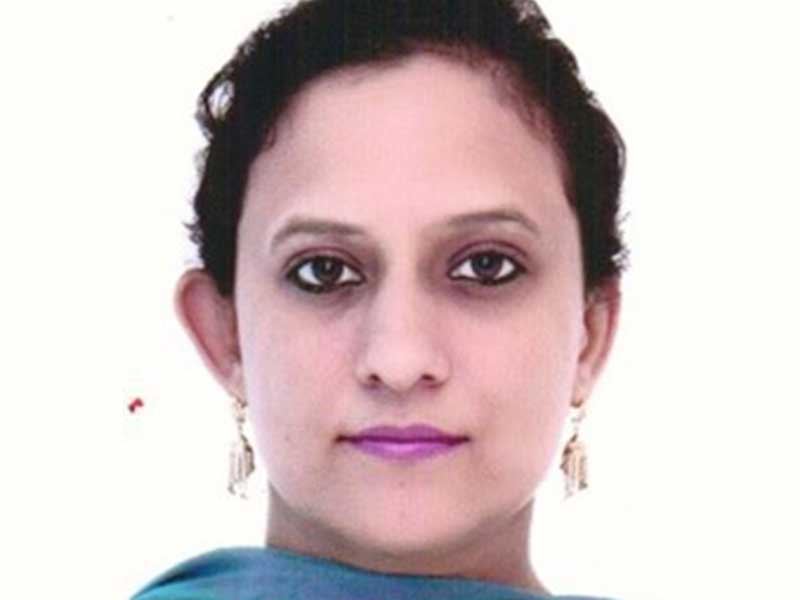
Kiranjot Kaur
Conestoga College, Canada
Kiranjot enthusiastically champions open education principles in the classroom and beyond. Her unwavering support and enthusiasm for student centred Open Education is clear in every aspect of her work at Conestoga College.
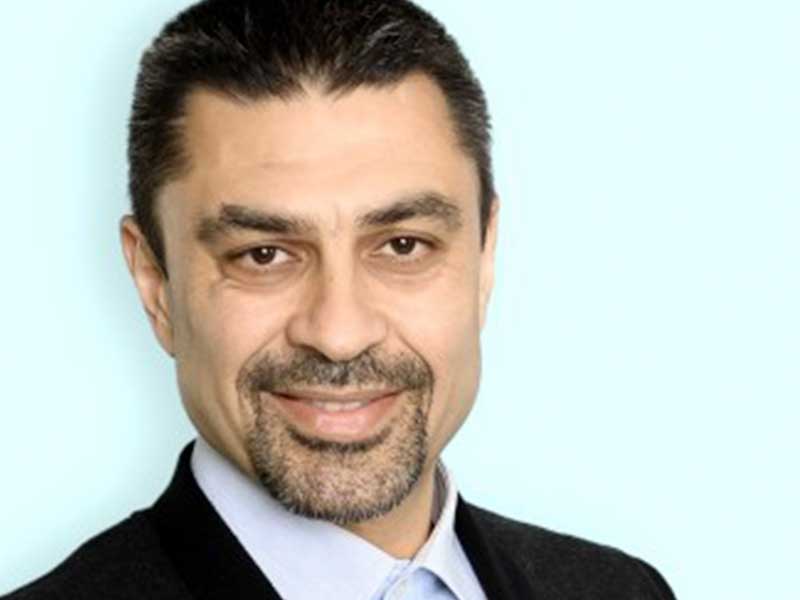
Fatih Yegul
Conestoga College, Canada
Fatih champions Open principles as an educator by not only creating new, relevant OERs that fill gaps in education for his students, but by acting as a pivotal piece in collaborations with students and faculty alike
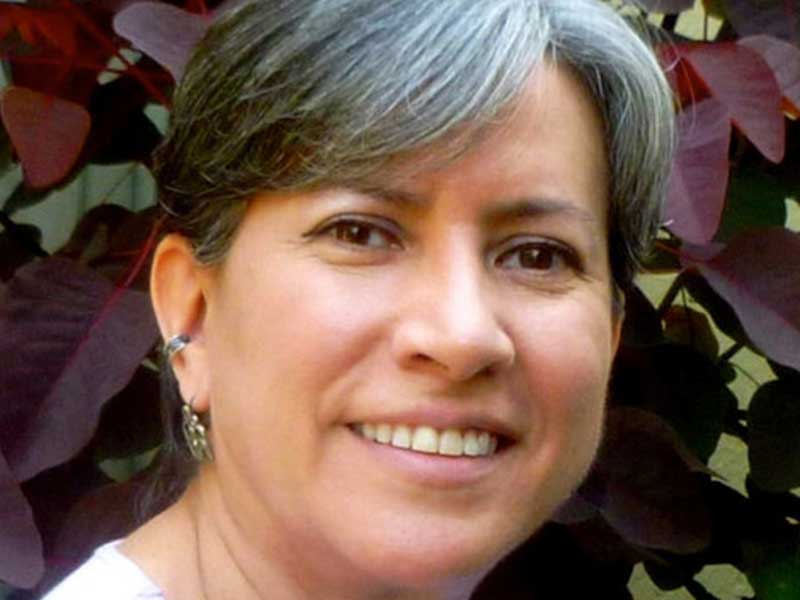
Maria Luisa Zorrilla
Universidad Autonoma del Estado de Morelos, Mexico
For over 8 years María Luisa Zorrilla has initiated and led the Digital Culture Program at UAEM as strategy created to build digital literacy within the university community, but also for the society at large through a widely used series of MOOCs.
Student Award
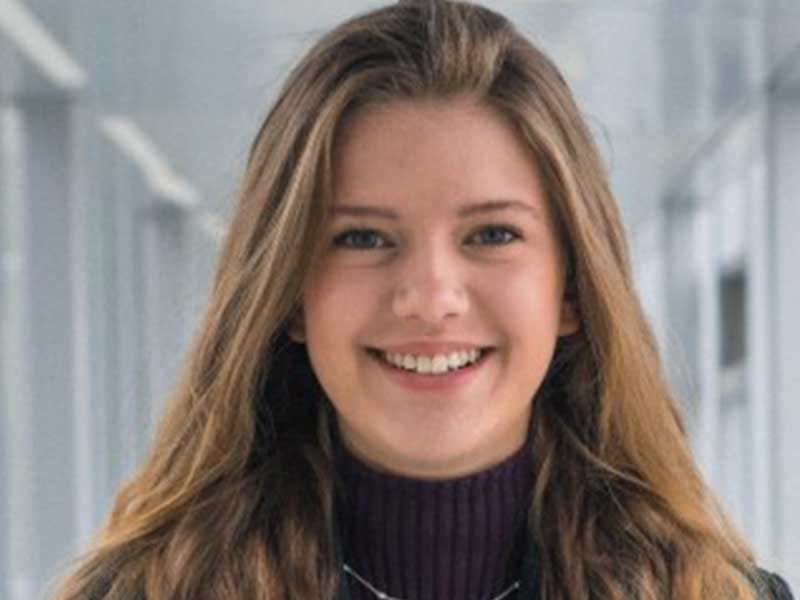
Carleigh Charlton
Brock University, Canada
As Vice President of the Brock University Students’ Union, Carleigh supports open educational practices across multiple dimensions, including university strategic planning, policy development, research and scholarship, tangible funding, education, and advocacy.
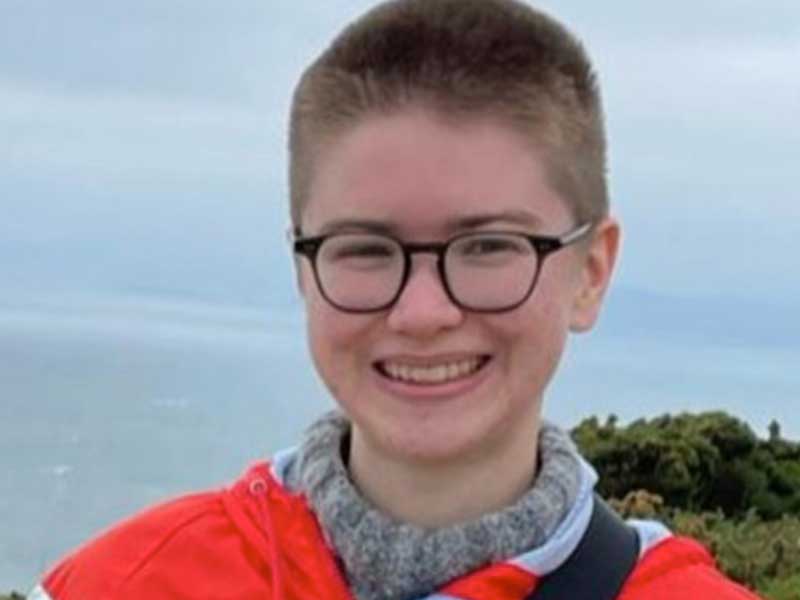
Mollie Schnurr
Trent University, Canada
As a student Course Design Assistant with Trent University’s Centre for Teaching and Learning (CTL), Mollie stands out as an innovative advocate for open education and has been committed to advancing open educational resources and practices throughout her academic journey.
Leadership Award
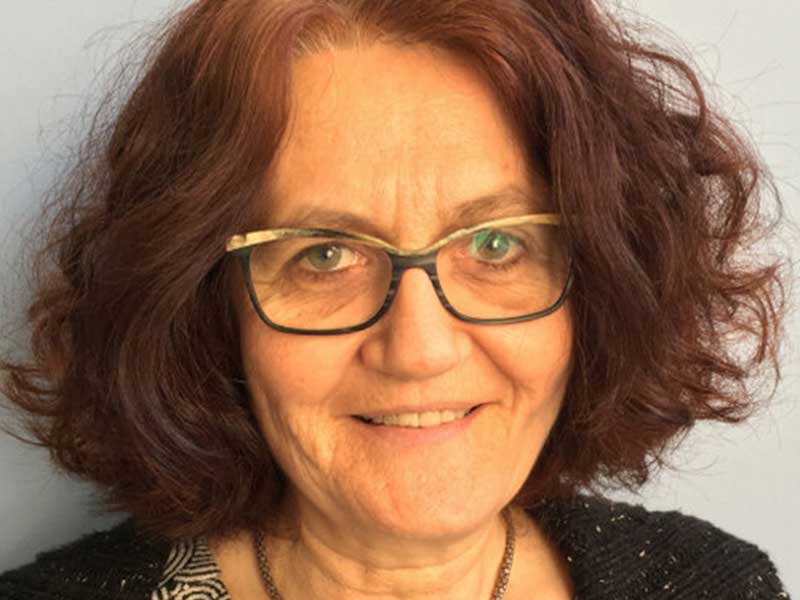
Laura Czerniewicz
University of Capetown, South Africa
Laura plays a key strategic and scholarly role in the area of open education, nationally and internationally. She has has a long-standing commitment to open education and has been especially influential fostering openness in all its many forms as a means of social justice. .
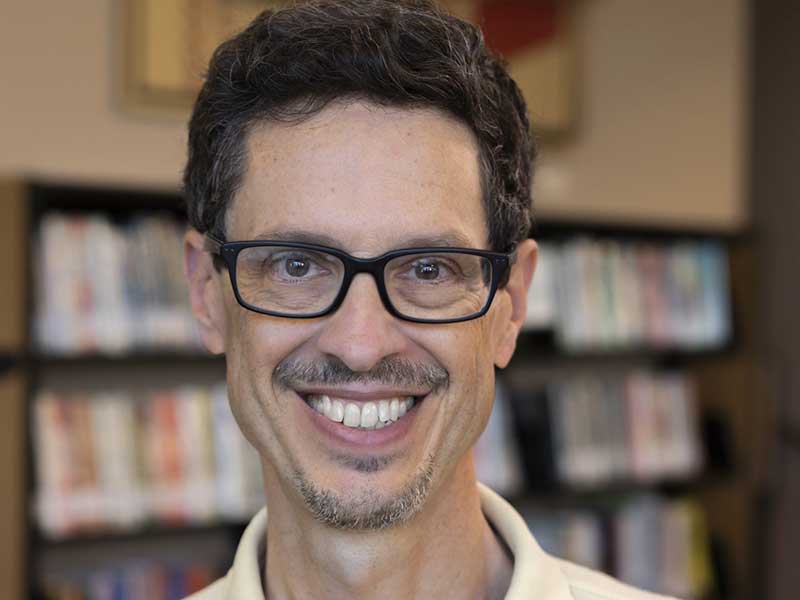
James Glapa-Grossklag
College of the Canyons, United States
In designing, developing, lobbying for, and securing funds for the California Community College Zero-Textbook-Cost Program, James has led one of the largest and indispensable tools for achieving social mobility making California a place where OER has reached center stage.
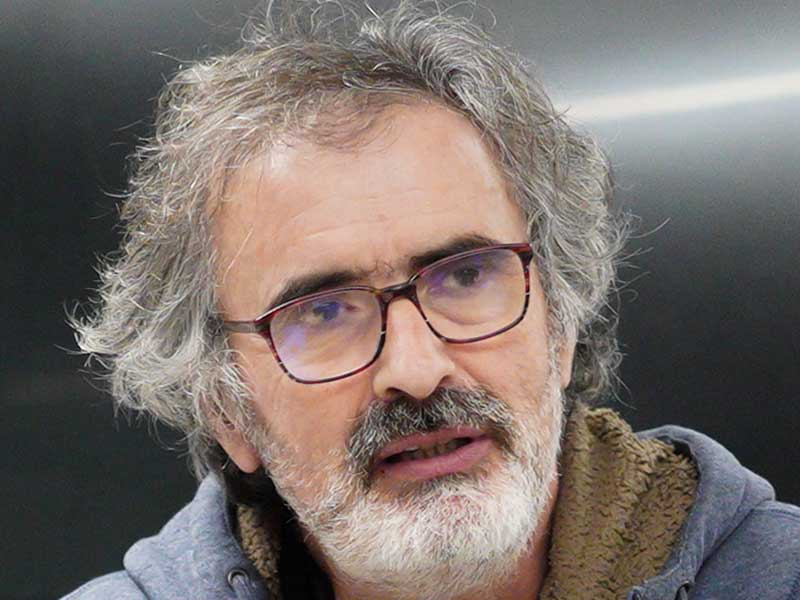
Colin de la Higuera
Nantes Université, France
Colin is internationally recognized for his vision and inspirational mentoring in the field of Open Education, notably in linking the issues of open education with those of Artificial Intelligence. He has led the creation of the UNESCO sponsored Unitwin Network in OE including 16 institutions from 14 countries.

Adrian Stagg
University of Southern Queensland, Australia
Adrian’s longstanding leadership in the Open Education landscape is apparent in his values- and community-based approach to leading people and projects. He has made a significant impact on the development of an Open Education culture in Australia and around the world.
What We Share
Open Curation / Repository
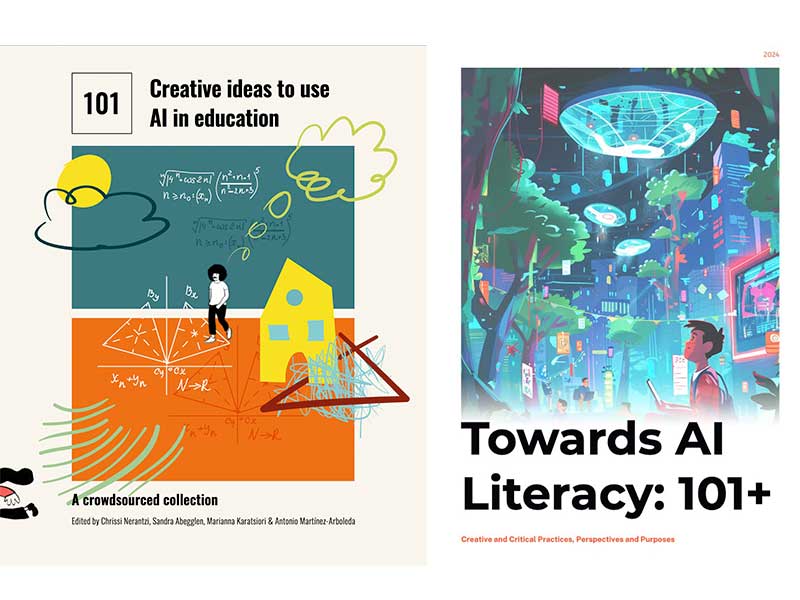
101 Creative Ideas to Use AI in Education and Towards AI Literacy 101+: Crowdsourced Collections
University of Leeds; University of Calgary; University of Macedonia; University of Suffolk; University of the Arts London, Canada; United Kingdom; and Greece
These two volumes of crowdsourced open access books presents a rich tapestry, stitching together potential alternative uses and applications of Artificial Intelligence (AI) that could make a difference and create new learning, development, teaching and assessment opportunities.
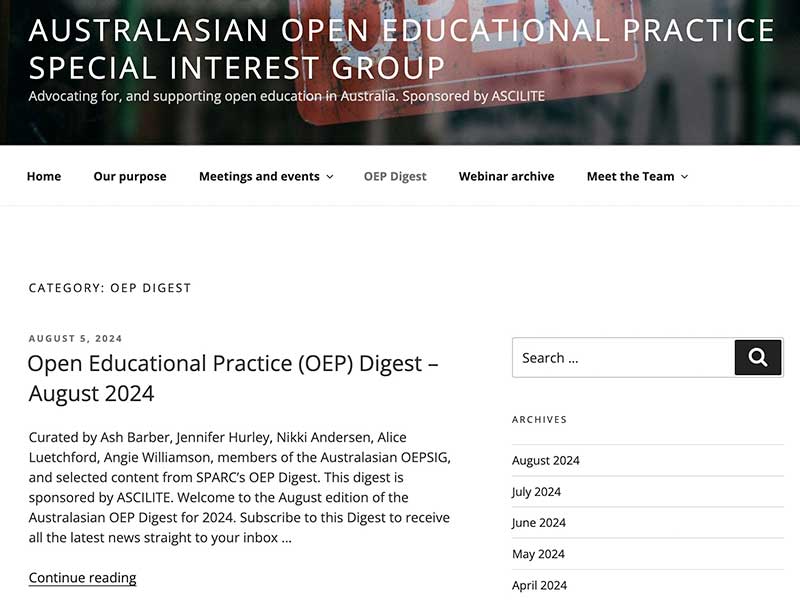
Australasian OEP Digest
Australian Open Educational Practice Special Interest Group, Australia
This curated newsletter provides a localised, relevant, reliable and supportive community resource. It is the only resource drawing together pertinent Australasian practices, publications, research, and professional learning opportunities – all of which are critical to practitioners across the sector.
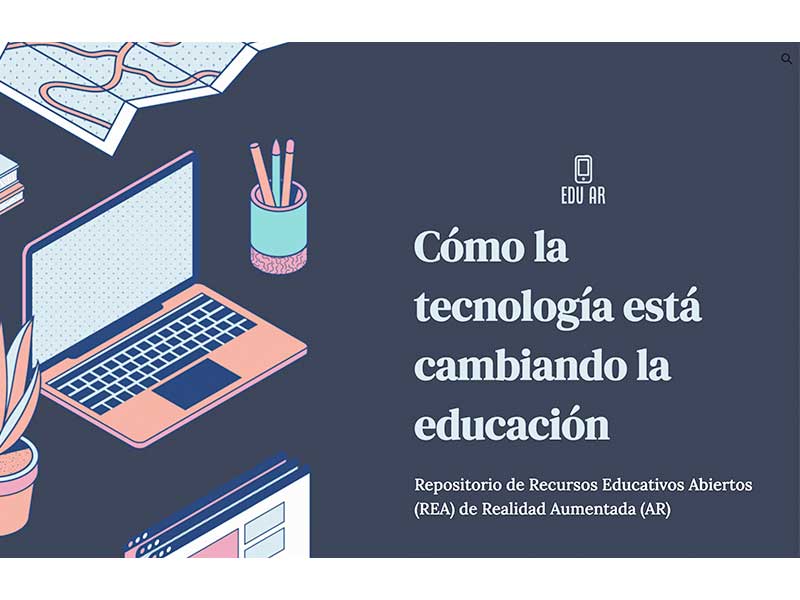
EduAR.net
Tecnologico deMonterrey / Universidad César Vallejo, Mexico
EduAR.net s a pioneer in integrating augmented reality in education, providing innovative tools that enhance learning and teaching. It offers a focus on accessibility, resource quality, and openly licensed training materials
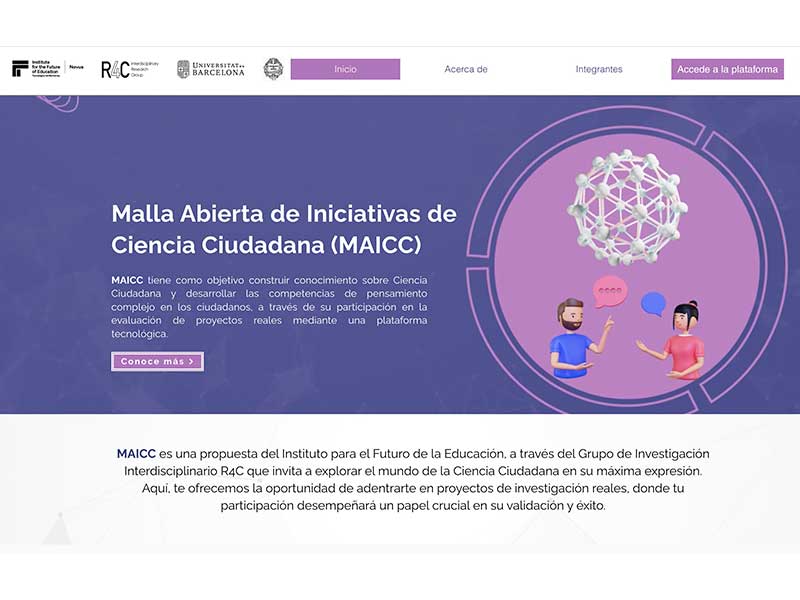
Malla Abierta de Iniciativas de Ciencia Ciudadana (MAICC)
Tecnologico de Monterrey, Mexico
MAICC aims to build knowledge about Citizen Science and develop complex thinking skills in citizens, through their participation in the evaluation of real projects.
Open Infrastructure
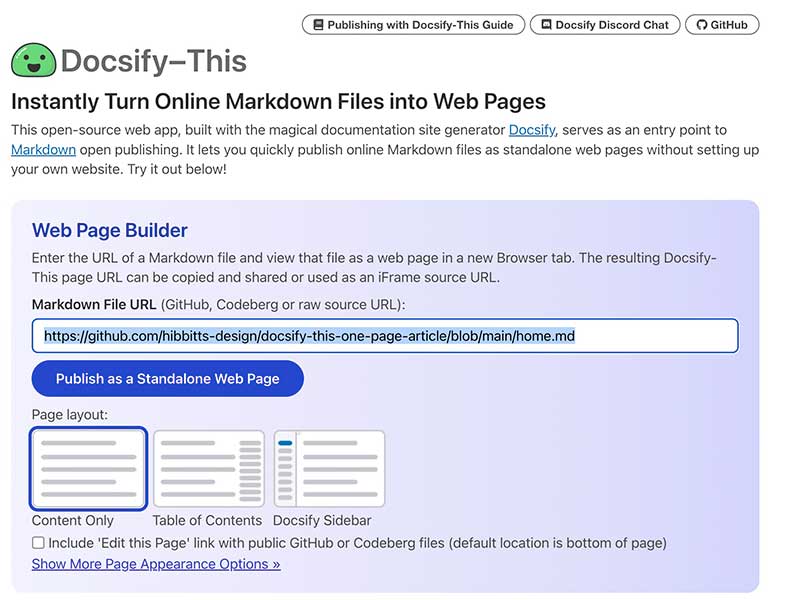
Docsify-This
Hibbitts Design, Canada
Docsify-This lowers the barriers to Markdown open publishing. By providing a low-barrier, flexible, and open-source solution, Docsify-This significantly increases the ability of educators and publishers to create, manage, and share open educational content.
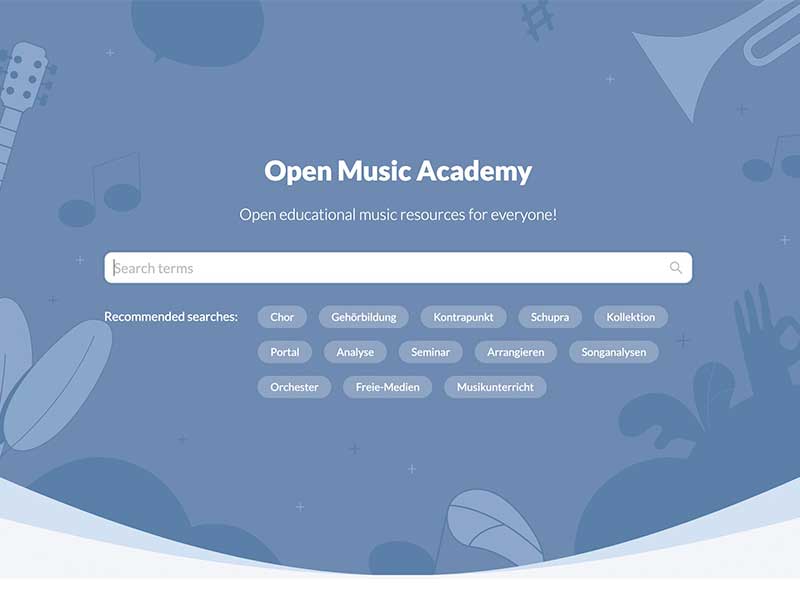
Open Music Academy
Hochschule für Musik und Theater München, Germany
This platform was designed for creating and sharing open educational resources for anyone interested in music. It provides an infrastructure for students and educators uniquely offers tools specifically designed to learn, play and analyse music while being both free and open.
Open Reuse / Remix / Adaptation
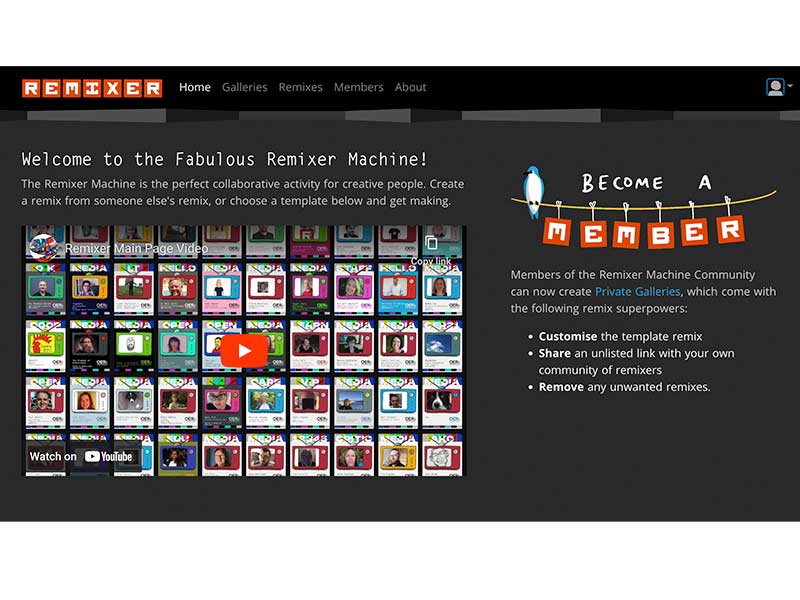
The Fabulous Remixer Machine
Visual Thinkery, United Kingdom
This free-to-use tool allows for the remixing of pedagogically useful information in a whimsical way. Remixes themselves can remixed, showcasing the value of open licenses such as Creative Commons.
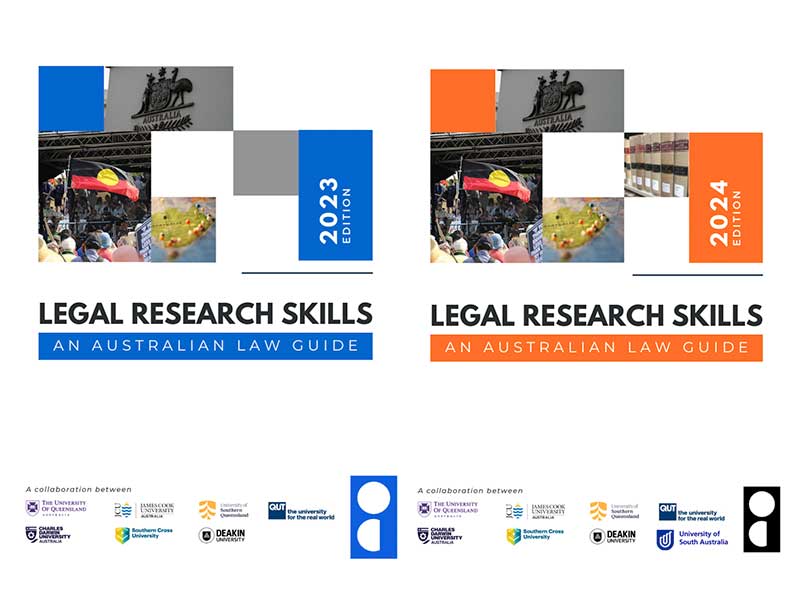
Legal Research Skills: An Australian Law Guide
University of Queensland Library, James Cook University Library, University of Southern Queensland Library, Charles Darwin University Library, Southern Cross University Library, Queensland University of Technology Library, Deakin University Library, and University of South Australia Library, Australia
Legal Research Skills provides an introduction to online legal information and reduces the financial burden for law students and legal researchers alike
Significant Impact OER
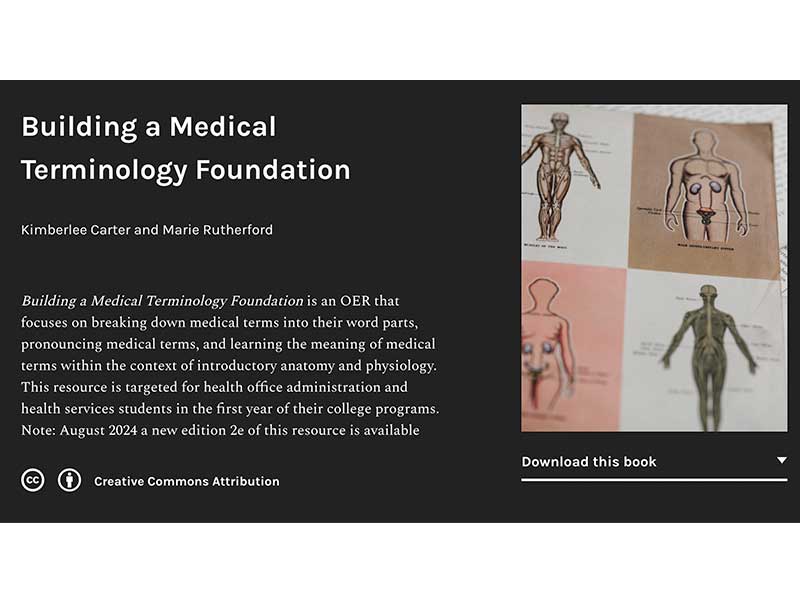
Building a Medical Terminology Foundation
Conestoga College, Canada
Building a Medical Terminology Foundation focuses on breaking down medical terms into their word parts, pronouncing medical terms, and learning the meaning of medical terms within the context of introductory anatomy and physiology.
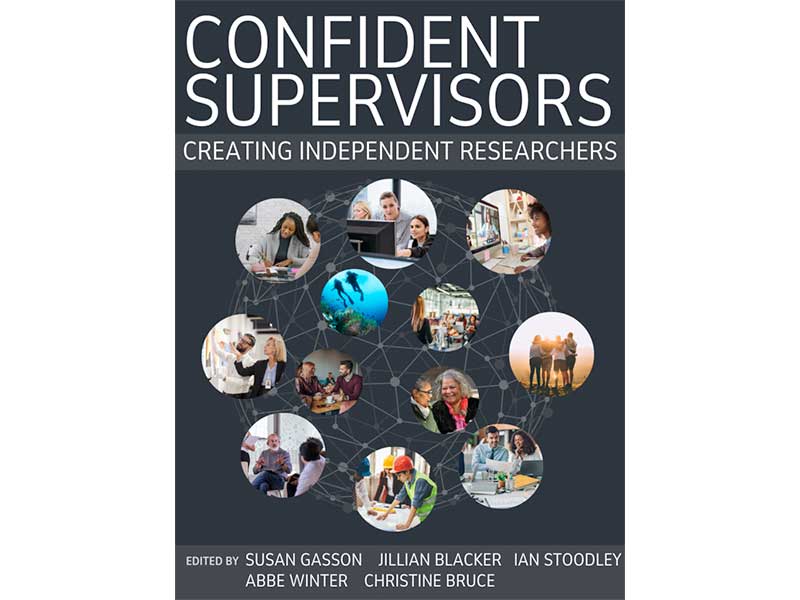
Confident Supervisors: Creating Independent Researchers
Multiple Organizations, Australia, New Zealand, United States, Europe, Papua New Guinea
With a gap in open education resources aimed at supporting supervisors, Confident Supervisors: Creating Independent Researchers was created to address critical challenges in resourcing and support for graduate research studies within higher education. This eBook is making an important contribution to the field of graduate education supervision..
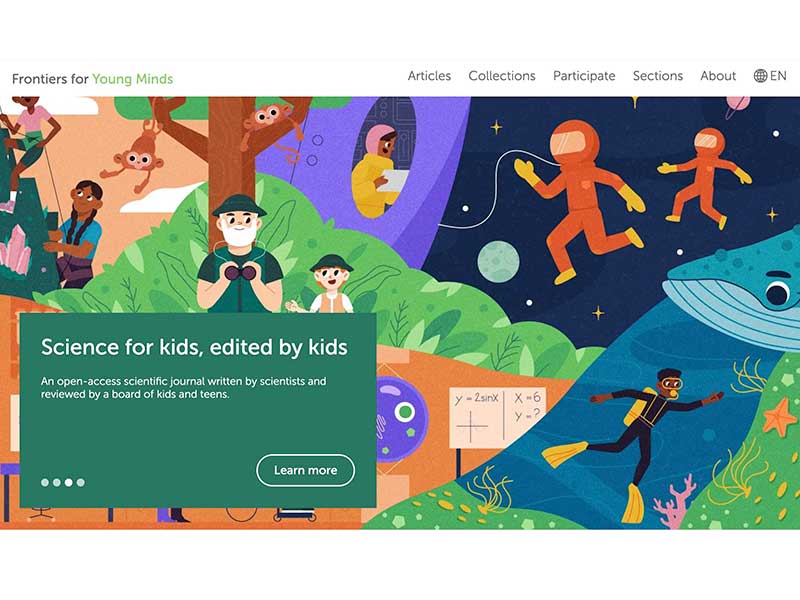
Frontiers for Young Minds
Frontiers for Young Minds, Switzerland
Frontiers for Young Minds makes cutting-edge science discoveries available to younger audiences.vDistinguished scientists are invited to write about their discoveries in a language that is accessible for young readers, and it is then up to the kids themselves to provide feedback and explain to the authors how to best improve the articles before publication.
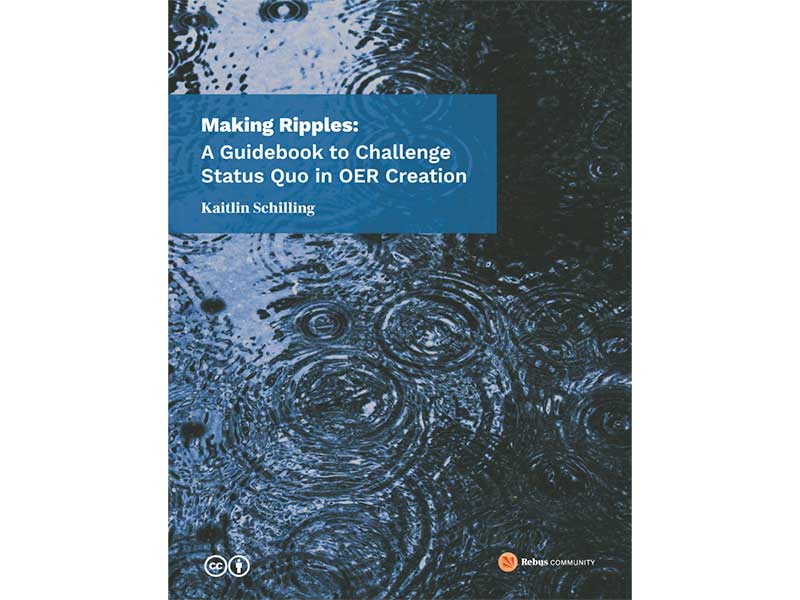
Making Ripples: A Guidebook to Challenge Status Quo in OER Creation
Rebus Community, Canada
Maikng Ripples expands the understanding of inequities in the educational systems by breaking down the work into smaller pieces with opportunities to reflect, identify strategies for action, and locate resources and community members to connect with.
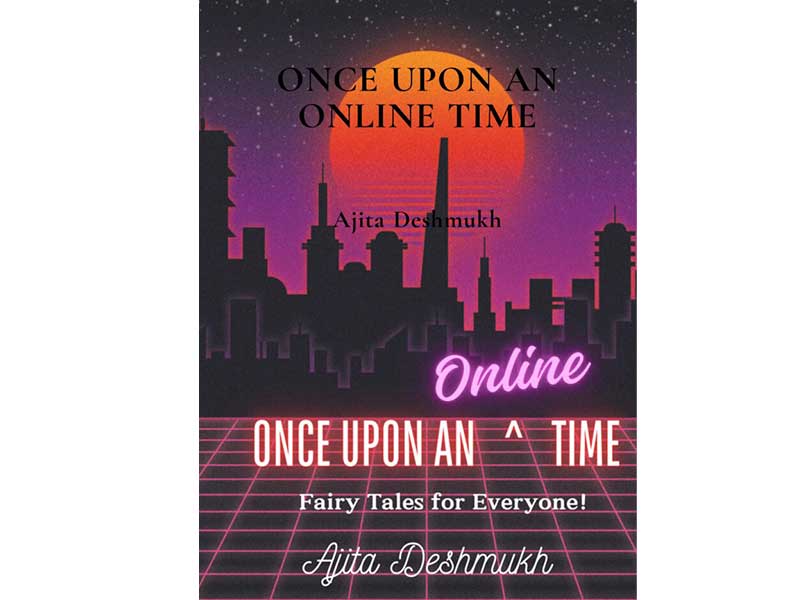
Once Upon an Online Time: Cybersecurity Issues recast through Classic Fairy Tales
Ajita Deshmukh, India
This book is ian innovative approach to cybersecurity education. By integrating important lessons into familiar narratives, it makes complex concepts accessible and memorable. This storytelling method not only engages readers but also bridges the gap between traditional tales and modern-day challenges.
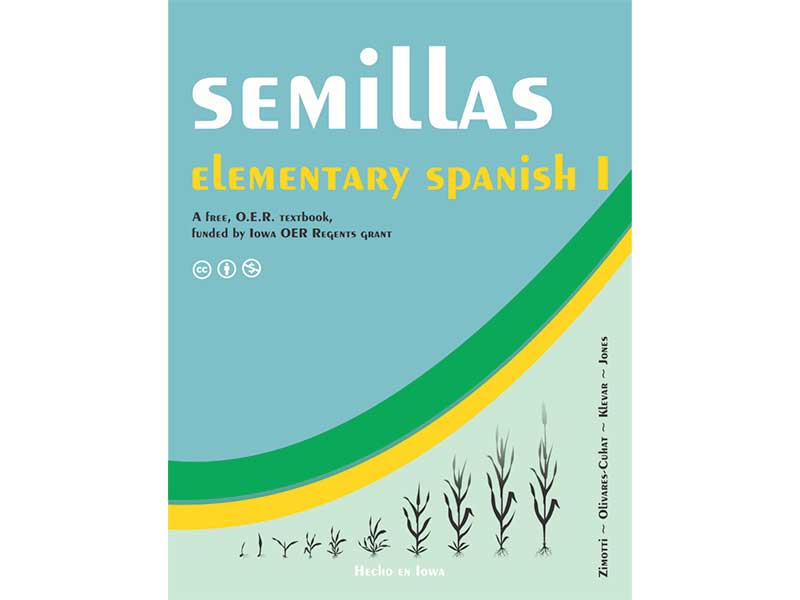
Semillas Elementary Spanish I
University of Iowa, United States
Semillas: Elementary Spanish Is a comprehensive introductory Spanish open-access textbook with reading, listening, speaking, and writing practice. This Open Educational Resource aims to help students begin learning Spanish in a communicative and comprehensive manner.
How We Share
Open Collaboration
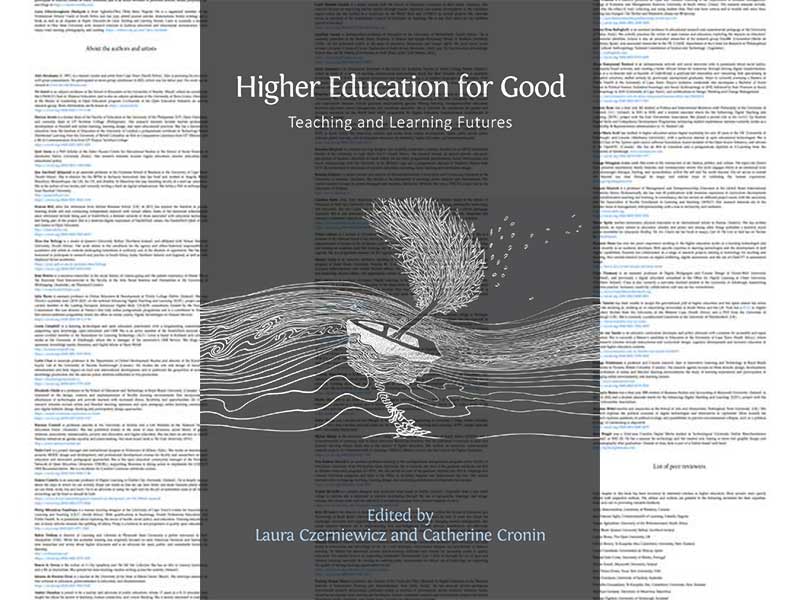
All People Behind Higher Education for Good
Global
Higher Education For Good is an inspiring open work on its own, here recognized for the representational breadth of authors, multimodality of their expression, but more so, in the stories of what went into the creation of this work. This is a definitive example of global, open collaboration that is purposefully driven.
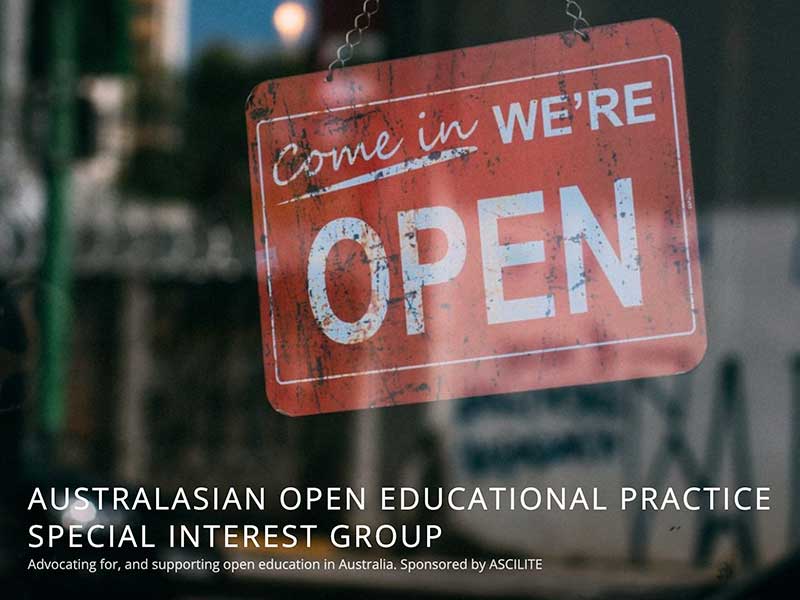
Australasian Open Educational Practices Special Interest Group
Multiple Organizations, Australia
The Australasian Open Educational Practice Special Interest Group is dedicated to the notion of sharing practice, creating fellowship, and building on opportunities for advocacy, policy, and practice. The SIG positively contributes to a maturing Australasian ecology of open practices that connects staff inter-institutionally
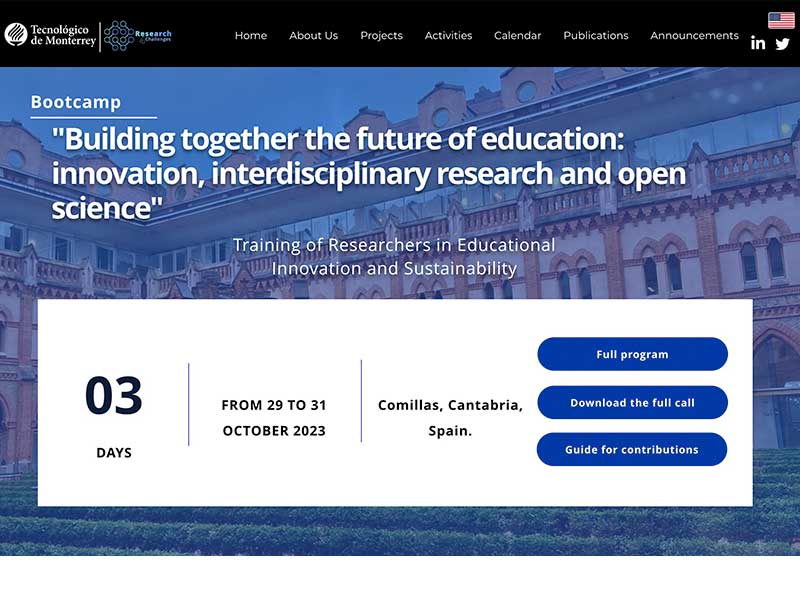
Building together the future of education Innovation: Interdisciplinary Research and Open Science Bootcamp
Tecnologico de Monterrey, Spain
This collaborative bootcamp brought together researchers and educators from academic institutions, businesses, and governments across the world. The goal was to co-create open educational resources, promote the generation and transfer of knowledge, and train researchers in educational innovation and sustainability.
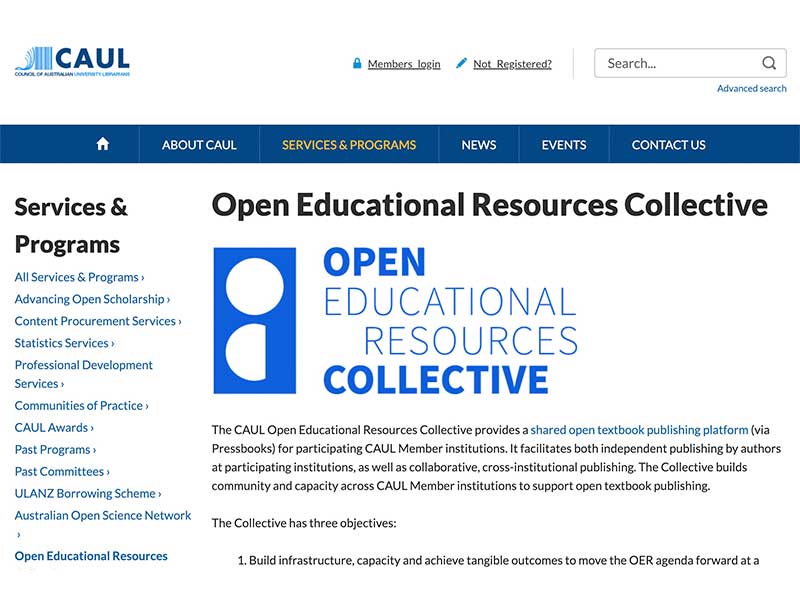
CAUL Open Educational Resources Collective
Multiple Organizations, Australia & New Zealand
The Collective fosters collaborative open practices within the academic community of Australia and Aotearoa New Zealand, to advance the OER agenda nationally and beyond. It facilitates the collaborative authoring and publishing of open textbooks, prioritising disciplines where local and indigenous content can enrich learning materials.
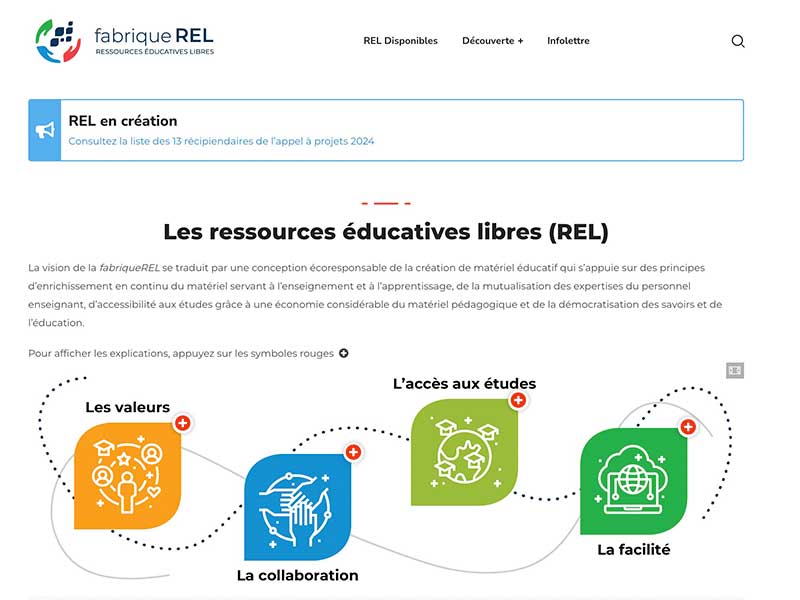
fabriqueREL
Multiple Québec Colleges and Universities, Canada
Québec’s first collaborative OER initiative is an inter-institutional project to raise awareness of the values surrounding open source and open pedagogy, support creation, use and dissemination of OER, to develop professional expertise, and to strengthen collaboration across institutions.
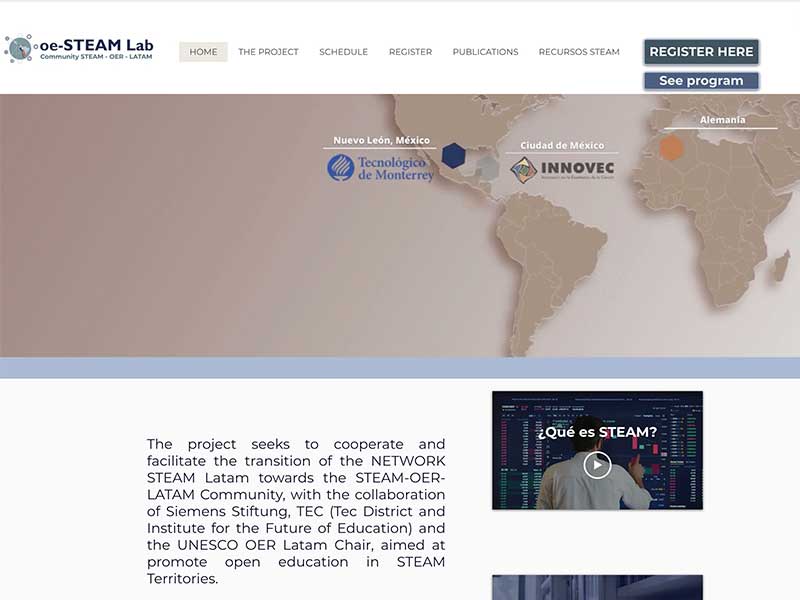
Open Access Teaching Case Journal
Conestoga College, Canada
The Open Access Teaching Case Journal is a dynamic, digital-first, and accessible collection of high-quality, non-fiction applied research teaching cases. The OATCJ exemplifies open collaboration in its development process and continued expansion.
Open Pedagogy
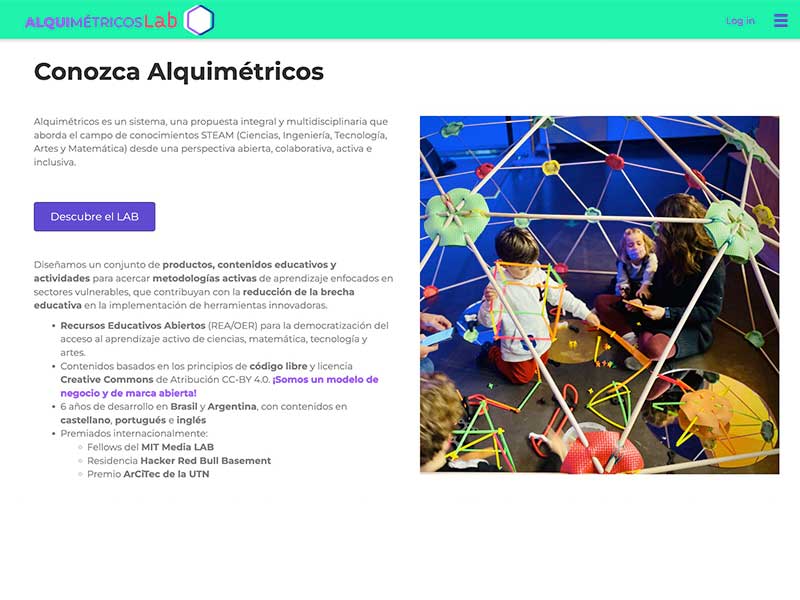
Alquimétricos Kit Cero
Alquimétricos, Argentina
Alquimétricos advances STEAM knowledge via an open, collaborative, active and inclusive perspective. Centered an approach of hands-on activities with kits including 3D printed objects and training resources openly licensed, it’s activities strengthens teamwork, personal development, creativity, organization and integration.
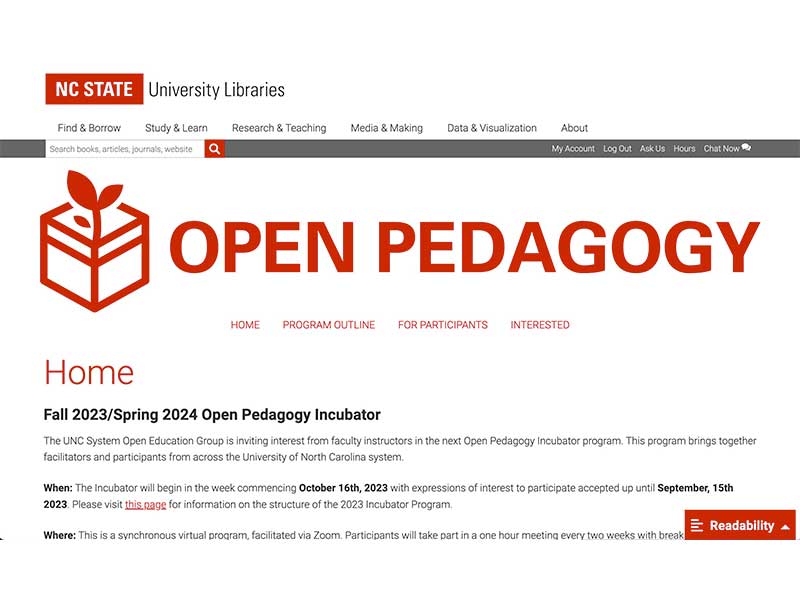
NC State University Open Pedagogy Incubator
North Carolina State University, United States
The Open Pedagogy Incubator brings together interdisciplinary faculty and librarians to develop their open pedagogy skills through practical workshops, curated readings, and group discussion. This program began as an NC State initiative and has grown to encompass the entire UNC system and served as a model for national and global communities.
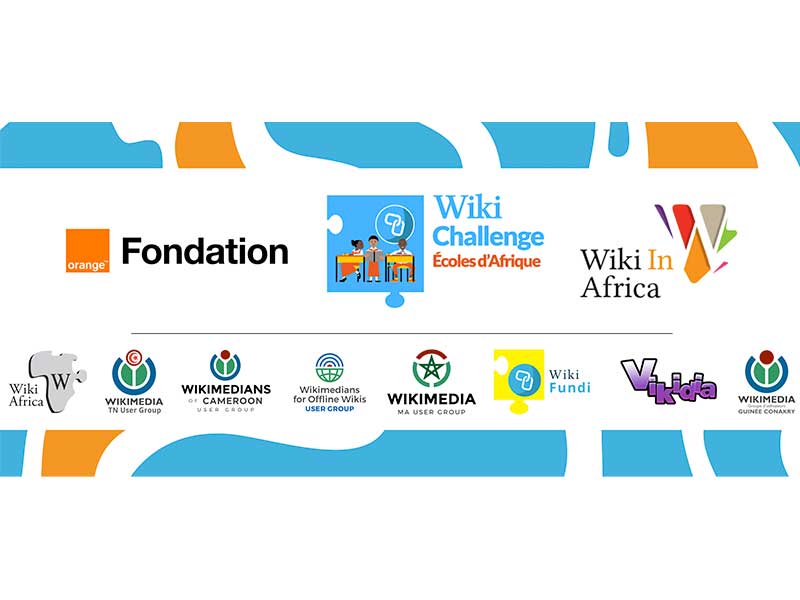
WikiChallenge Ecoles d’Afrique / WikiChallenge African Schools
Fondation Orange / Wiki in Africa, Africa
At the core, the WikiChallenge a writing competition specifically designed for pupils aged 8-13 in various French-speaking African countries. Through its inclusive and collaborative model, the project has engaged thousands of students and educators in creating and sharing knowledge about their local environments.
Open Research
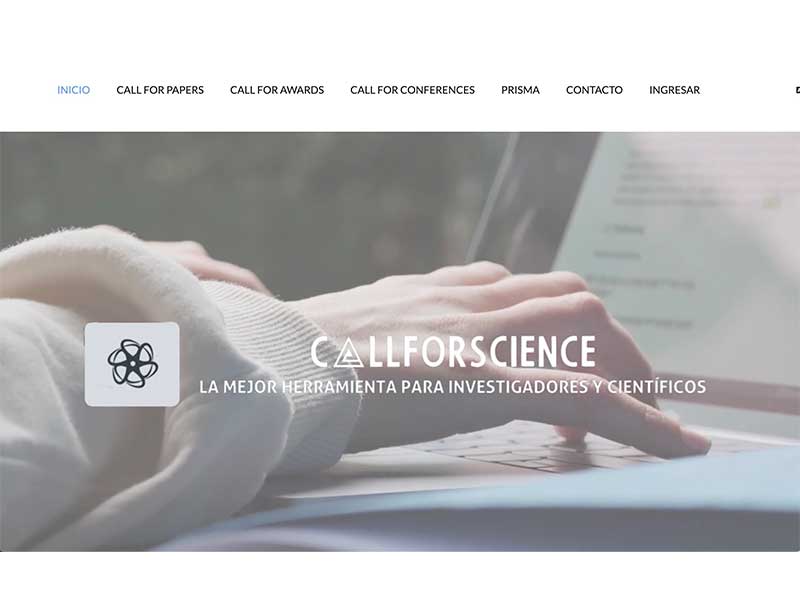
Call For Science
Tecnologico de Monterrey, Mexico
CallForScience is an innovative open platform designed to transform how educational researchers access publication opportunities and essential resources. It provides educational researchers with the tools necessary to advance their studies and contribute to global knowledge with a focus on accessibility, sustainability, and innovation..
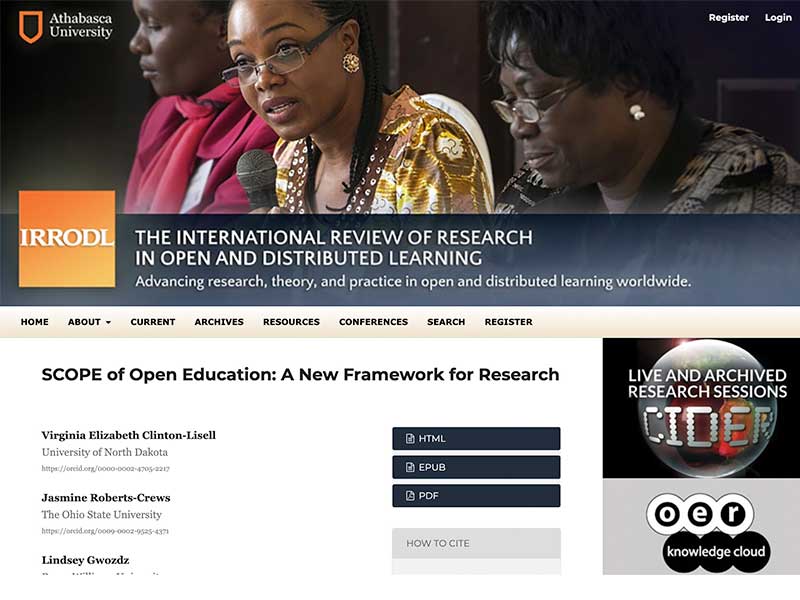
SCOPE of Open Education: A New Framework for Research
University of North Dakota, The Ohio State University, Roger Williams University, United States
The SCOPE (social justice, cost, outcomes, perceptions, and engagement) framework of open education research was developed as an integrative, theoretically grounded framework in open education. It has specific suggestions for future research, such as how women of color are disproportionately tasked with open education, inclusive access for course materials (also known as automatic textbook billing), and learning analytics for examining open education engagement.
Special Awards
Diversity, Equity & Inclusion
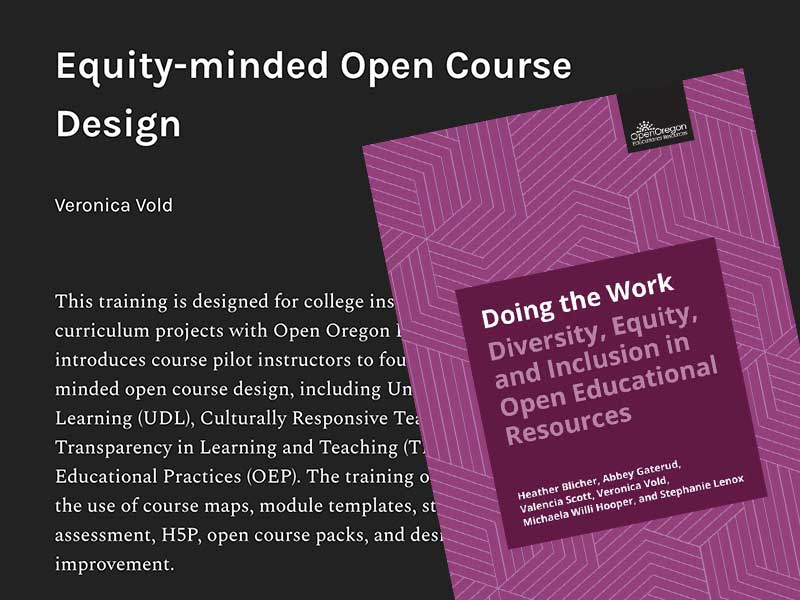
Doing the Work: Diversity, Equity, and Inclusion in Open Educational Resources and Equity-minded Open Course Design
Open Oregon Educational Resources, United States
These two handbooks address in specific and practical ways, important areas where open textbook authors and course instructors can differentiate themselves with a student-centered approach. With them, educators in any role can find comprehensive information for launching high-quality, openly-licensed course materials with an equity lens.
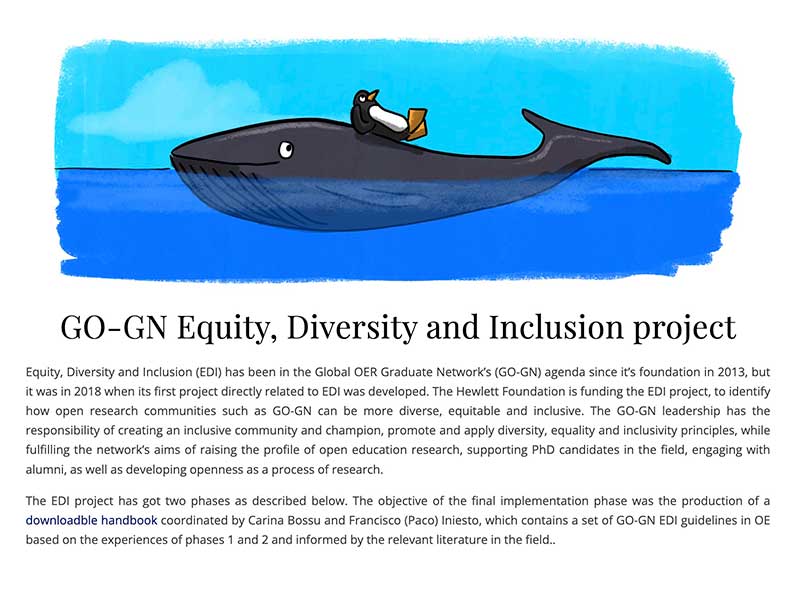
Equity, Diversity and Inclusion in Open Education project
Global OER Graduate Network (GO-GN), Global
The EDI project was developed to help GO-GN to increase representation and reach OE researchers who might benefit from joining the network the most. It was also established to amplify EDI in Open Education (OE) in regions that are often marginalized from the main discourse of OE.
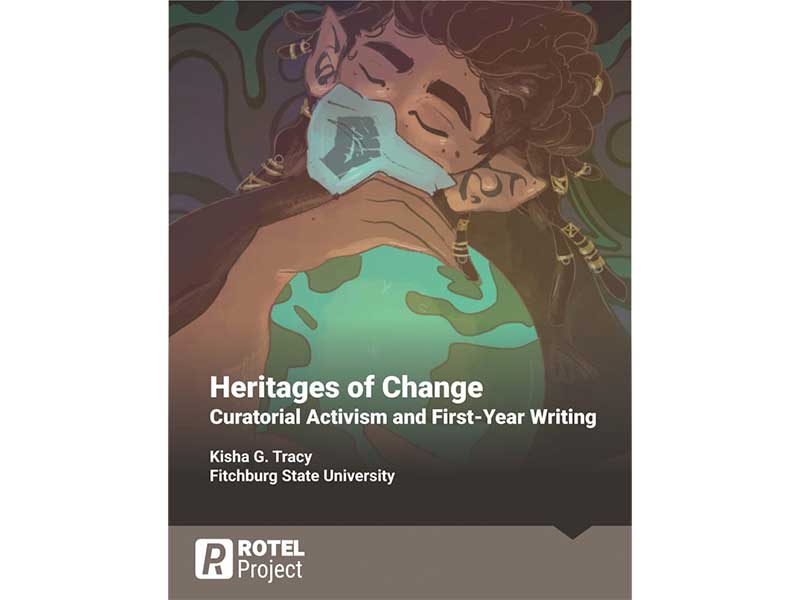
Heritages of Change: Curatorial Activism and First-Year Writing
Fitchburg State University, United States
Heritages of Change attempts to bring to the fore heritages that have been historically marginalized. This textbook approaches writing and information literacy through the lens of curatorial activism. Through curation and exhibition as an act of activism, students focus on a specific audience with whom they can communicate authentically about this dynamic world.
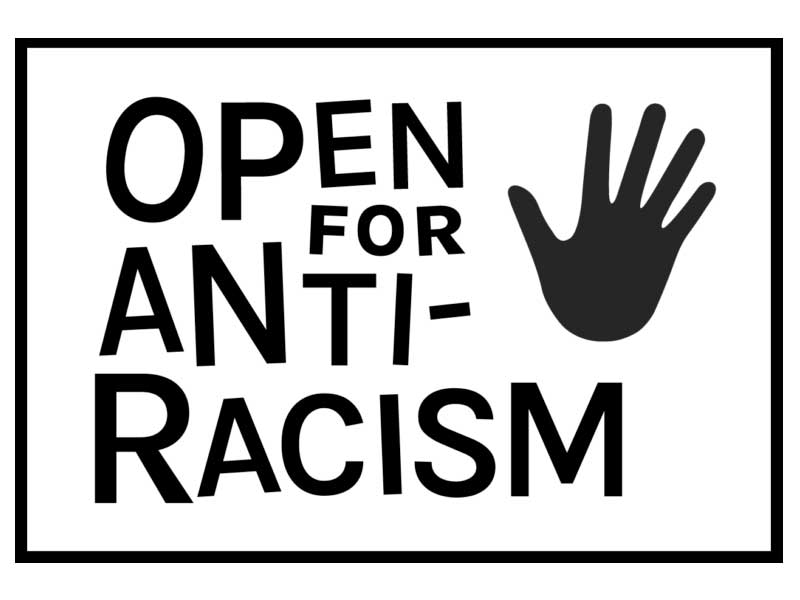
Open for Antiracism
CCCOER, United States
The Open for Antiracism (OFAR) program provides faculty from across the California Community Colleges with training on how to leverage OER and Open Pedagogy in order to make their teaching antiracist. OFAR emerged as a response to the growing awareness of structural racism in higher education in the United States.
Open and AI
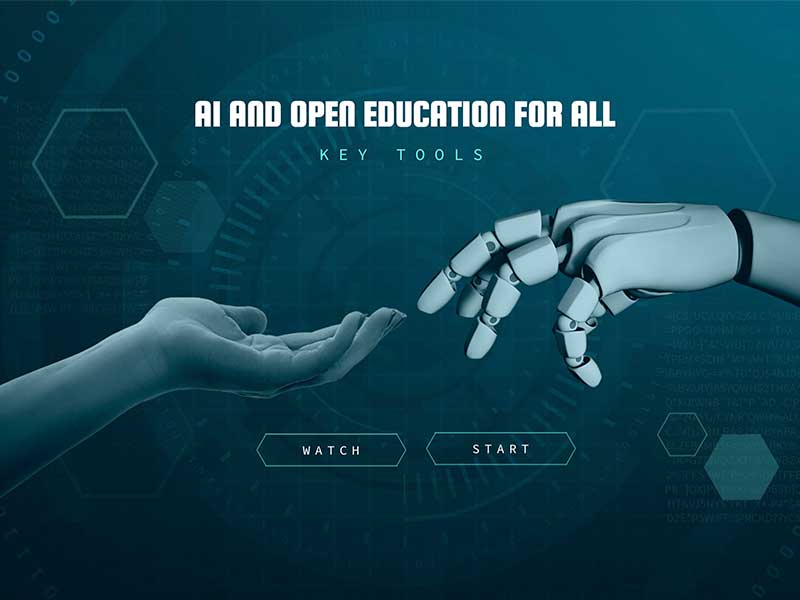
AI and Open Education for All
Tecnologico de Monterrey, Mexico
“AI and Open Education for All” exemplifies the responsible and effective use of AI in education while adhering to open education principles. The project tackles current educational challenges through the use of AI, promoting the creation of an ethical and collaborative framework for its implementation.
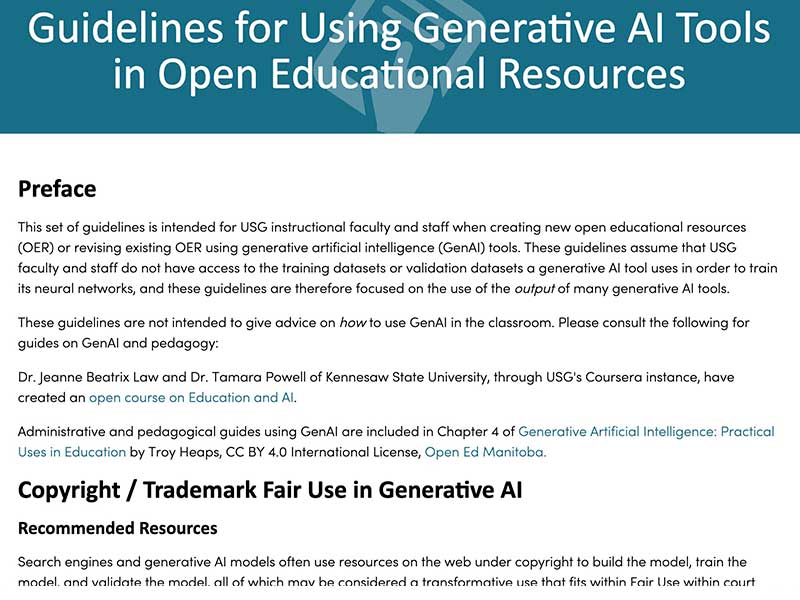
Guidelines for Using Generative AI in Open Educational Resources
University System of Georgia/Affordable Learning Georgia, United States
ALG’s Guidelines for Using AI Tools in Open Educational Resources offers OER developers guidelines and ladditional resources to support their efforts in complying with copyright and ethics as they use AI to generate content for new and/or remixed OER.
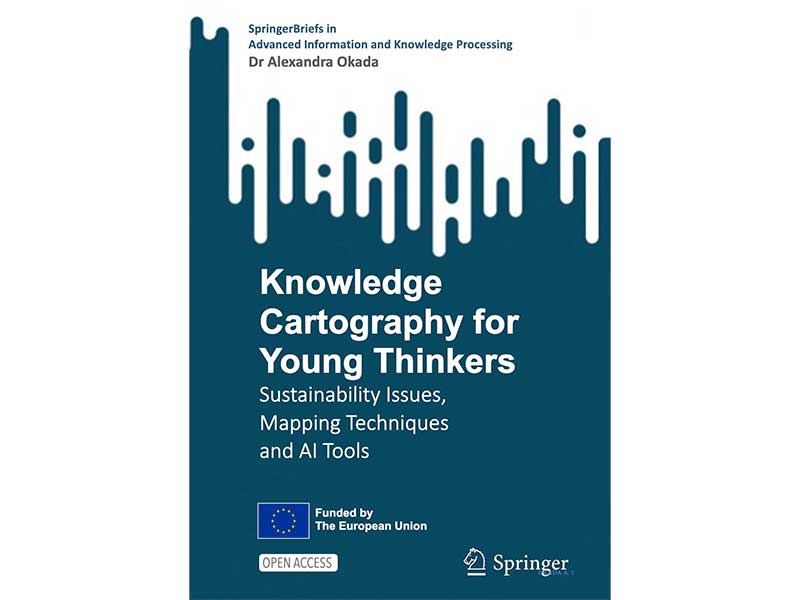
Knowledge Cartography for Young Thinkers Sustainability Issues, Mapping Techniques and AI Tools
The Open University, United Kingdom
This open access book embodies a revolutionary approach in the intersection of education technology and sustainability. It offers an innovative integration of sustainability issues, advanced mapping techniques, and artificial intelligence tools for open learners and open educators from schools and universities.
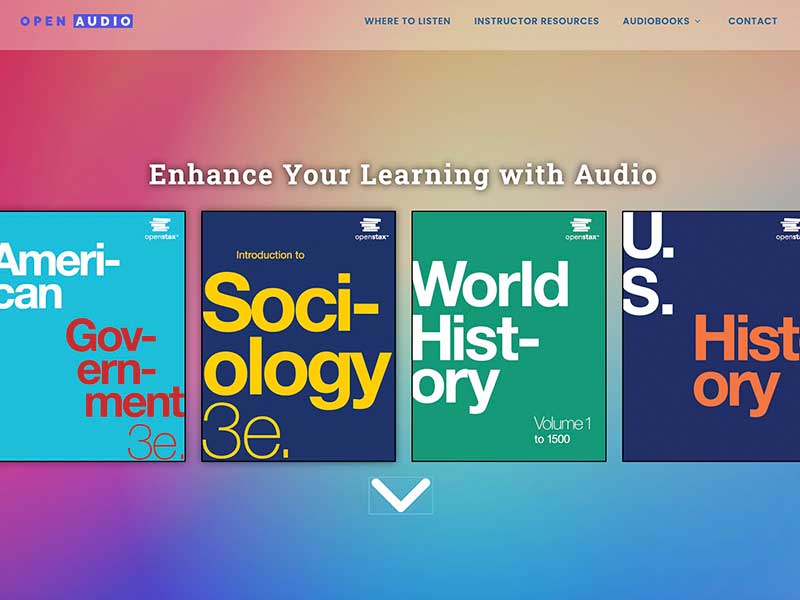
Open Audio – OER Audiobooks
Los Angeles Harbor College, United States
This project exemplifies the profound potential of artificial intelligence tools in expanding the accessibility and format options of OER materials. This project brings together two emerging trends in OER content creation by using artificial intelligence to produce high-quality audiobooks. It also demonstrates the power of AI to increase our productivity and individual reach as OER content creators.
Enacting SDGs
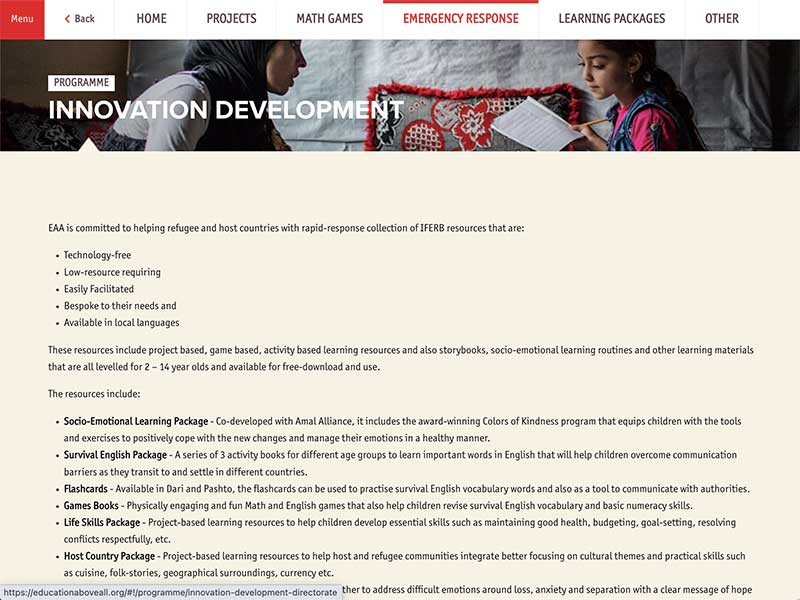
Education in Emergencies (EiE) Package
Education Above All Foundation, Qatar
The Education Above All Foundation addresses SD4 with its rapid-response collection of local language resources that are technology-free, low-resource requiring, and engaging. The emergency packages have been developed for emergency situations in Afghanistan, Ukraine, and Palestine.
Wildcard
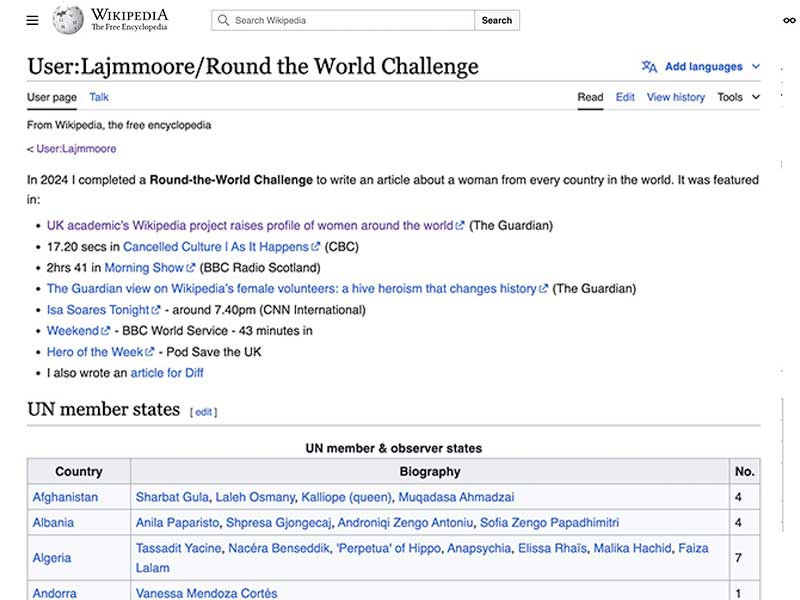
Editing Wikipedia as Academic Activism
University of York, United Kingdom
In 2024 Lucy Moore completed a challenge to write a Wikipedia article about a woman from every country in the world. Besides media attention,this effort sparked conversations about our knowledge ecosystems and inspired new editors all around the world. This was the goal, to demonstrate that editing Wikipedia can be an essential part of academic activism.
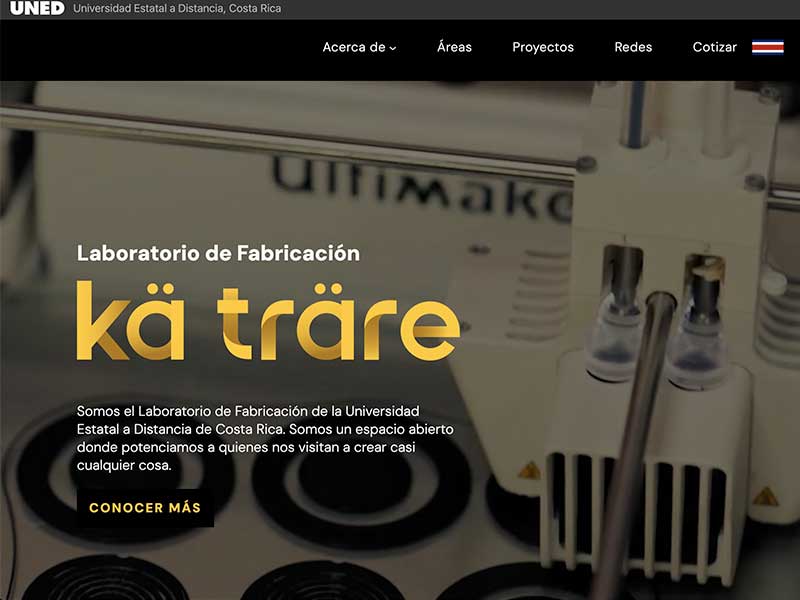
Fabrication Laboratory – Fab Lab Kä Träre
UNED de Costa Rica, Costa Rica
For ten years the Kä Träre Fab Lab has been an innovation space, promoting the use of technology, prototyping and creating solutions and addressing needs through the enormous possibilities of digital fabrication. It’s projects have contributed in areas such as medicine, dentistry, biology, education, criminology, and more. Most of the contributions have remained open, supporting populations with barriers to learning, such as people deprived of liberty, indigenous peoples, those with special needs, among many others.
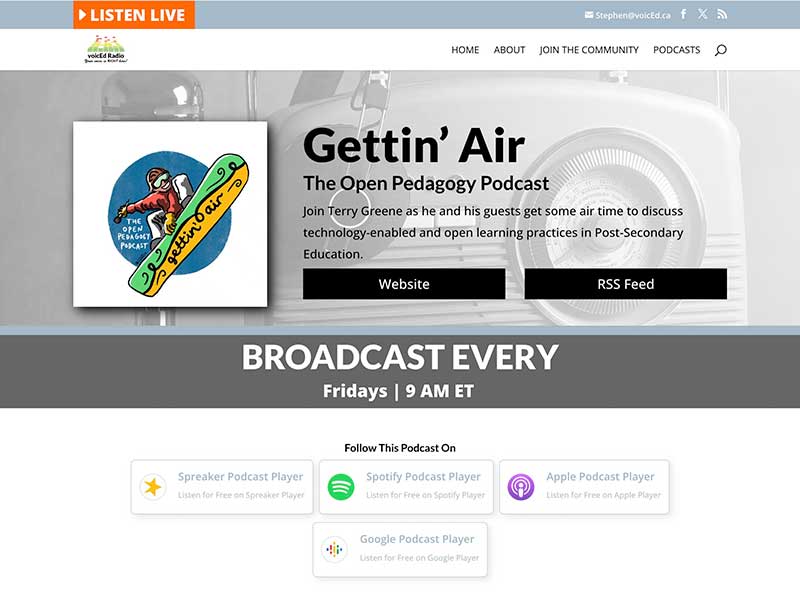
Gettin’ Air With Terry Greene
Trent University, Canada
Terry Greene has been producing the Gettin’ Air podcast since 2018, with over 170 episodes described on his site as “30-ish minute chats with those working in open and technology-enabled learning.” from people in technology, libraries, educators. It’s main value is making the ideas and motivations of people evident in a very relaxed style, while at the same time opening up discussions on topics across the field.
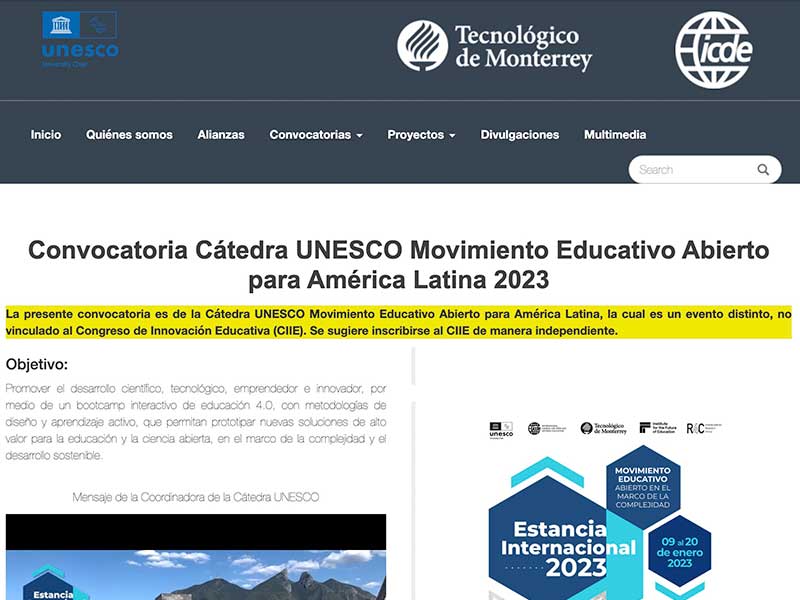
Open Educational Entrepreneurship – UNESCO Chair Open Educational Movement for LATAM 2023
Tecnologico de Monterrey, Mexico
This project is a groundbreaking initiative designed to promote scientific, technological, entrepreneurial, and innovative development through an interactive bootcamp. Utilizing design methodologies and active learning, the project aims to prototype high-value solutions for education and open science within the framework of complexity and sustainable development.